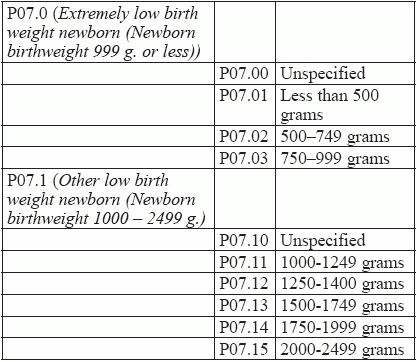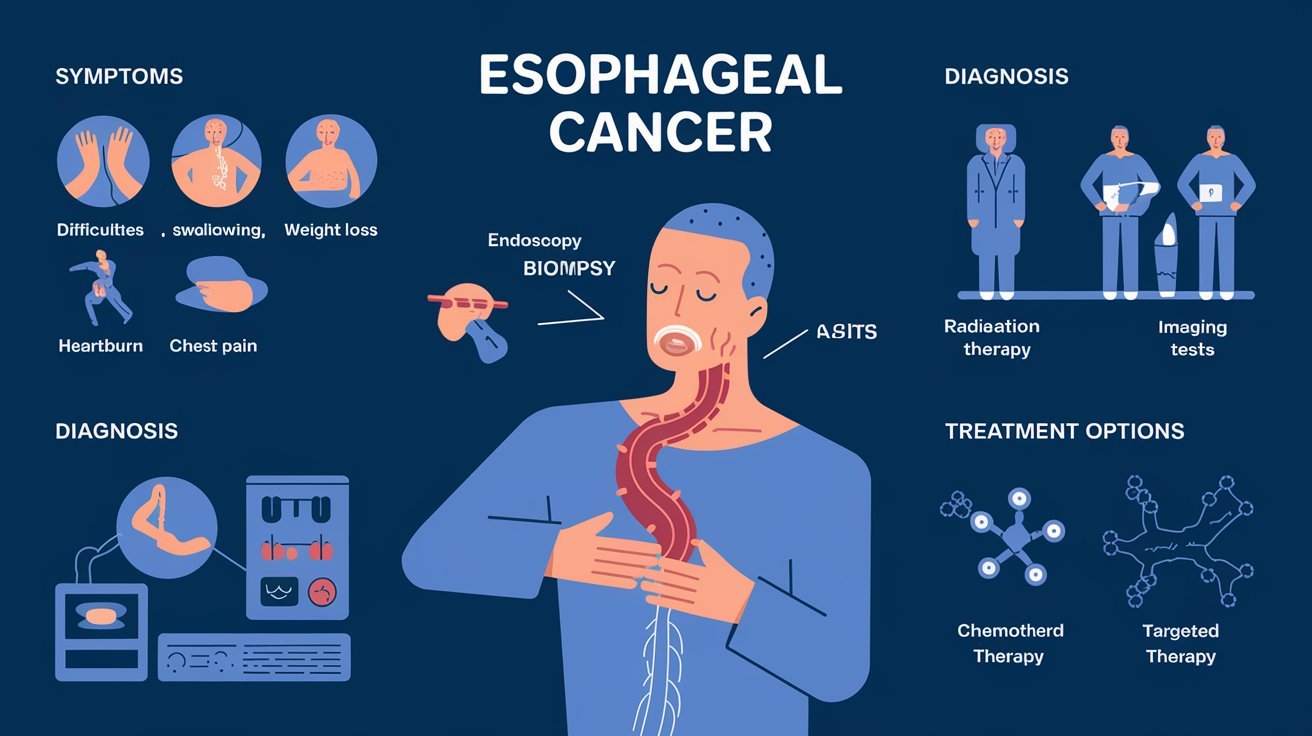Are you struggling to find the right code for weight loss in the ICD-10 system? You’re not alone.
Navigating the world of medical coding can often feel overwhelming, especially when you’re dealing with something as common yet complex as weight loss. Understanding the correct ICD-10 code is crucial for ensuring accurate medical records and facilitating effective communication between healthcare providers and insurance companies.
But here’s the good news: cracking this code doesn’t have to be a mystery. We’ll demystify the ICD-10 code for weight loss and show you how to use it effectively. Dive in to discover how this can simplify your healthcare interactions and give you peace of mind.
Icd-10 Basics
Weight loss is coded under ICD-10 as R63. 4, indicating abnormal weight loss. This medical classification helps healthcare professionals track and diagnose weight-related issues efficiently. Understanding this code is essential for accurate medical records and treatment planning.
Understanding the basics of ICD-10 can seem daunting at first, but it’s essential for anyone involved in healthcare or managing their health records. The International Classification of Diseases, 10th Revision (ICD-10) is a coding system used globally to classify diseases and health issues. It plays a crucial role in tracking healthcare statistics, billing, and ensuring clear communication between medical professionals.What Is Icd-10?
ICD-10 stands for the International Classification of Diseases, 10th Revision. It’s a medical classification list by the World Health Organization (WHO). Think of it as a universal language for healthcare providers to communicate about health conditions.Why Is Icd-10 Important?
ICD-10 codes help in standardizing the documentation of medical conditions. This standardization is vital for processing insurance claims, analyzing health trends, and planning public health strategies. Without it, managing and sharing medical data would be chaotic.How Does Icd-10 Relate To Weight Loss?
Weight loss isn’t just about shedding pounds; it’s about addressing underlying health issues. ICD-10 codes for weight loss can include conditions like malnutrition or obesity-related disorders. These codes help in diagnosing and creating treatment plans tailored to individual needs.Can Icd-10 Affect Your Healthcare Experience?
Absolutely! Accurate ICD-10 coding can lead to better treatment and faster insurance processing. Imagine visiting a doctor and having your condition misunderstood due to incorrect coding—it could delay your care. Accurate codes ensure you get the right help at the right time.How Can You Benefit From Knowing About Icd-10?
Awareness of ICD-10 can empower you in managing your health. When you know the codes related to your conditions, you can communicate more effectively with healthcare providers. This knowledge can also help you verify your medical bills and insurance claims for accuracy.Have You Ever Checked Your Medical Records?
If not, it might be time to start. Reviewing your records can ensure that your health information is correctly coded. This practice not only keeps you informed but also helps catch any discrepancies early on. Wouldn’t you want to be proactive in your healthcare journey?Purpose Of Icd-10 Codes
The purpose of ICD-10 codes might seem like a mystery at first glance, especially when you’re navigating the complex world of healthcare. These codes are much more than numbers; they serve as a universal language for healthcare providers. Understanding their role can empower you, whether you’re a patient or a healthcare professional, to better navigate medical records and insurance claims.
What Are Icd-10 Codes?
ICD-10 codes are a standardized system used internationally to categorize and document medical diagnoses. Created by the World Health Organization, they ensure consistency across healthcare systems. This coding system helps doctors and insurers speak the same language.
Why Are Icd-10 Codes Important?
Imagine trying to describe a diagnosis without a common language. It would lead to confusion and errors. ICD-10 codes eliminate these issues by providing precise definitions. This accuracy is crucial for billing and treatment plans.
How Do Icd-10 Codes Affect Your Weight Loss Journey?
Let’s say you’re working with a healthcare provider to lose weight. The ICD-10 code for obesity, E66, might be used in your medical records. This code can impact your insurance coverage and the types of treatments offered. Knowing your code can help you ask informed questions about your care.
Can Icd-10 Codes Improve Your Communication With Healthcare Providers?
Yes, they can! When you know your diagnosis code, you can discuss specific treatments and expectations more clearly. It’s like having a cheat sheet for your medical condition. This clarity can lead to more effective discussions and better outcomes.
How Can Icd-10 Codes Help With Insurance Claims?
Insurance companies rely on ICD-10 codes to process claims accurately. If you’re filing a claim for weight loss treatments, having the right code ensures your claim is handled correctly. This can save you time and stress in dealing with insurance paperwork.
Are Icd-10 Codes Used Worldwide?
Indeed, they are! ICD-10 codes are used globally, making them an essential tool for international healthcare communication. Whether you’re traveling or moving abroad, these codes help maintain continuity in your medical care.
Understanding ICD-10 codes can be empowering. How might knowing your diagnosis code change your approach to healthcare? Would it make you feel more in control of your medical journey? Reflect on these questions and consider how you can use this knowledge to your advantage.
Weight Loss Codes
Understanding the intricacies of weight loss is crucial, especially when it pertains to medical coding. The ICD-10 codes for weight loss are essential in identifying and categorizing the various types of weight loss that can affect your health. These codes are not just numbers; they are a reflection of your health journey, whether it’s shedding pounds intentionally or facing unexpected weight loss. Let’s delve into what these codes mean and how they can impact your health management.
Unintentional Weight Loss
Unintentional weight loss can be alarming. You might notice your clothes fitting looser or the numbers on the scale dropping without any effort. This type of weight loss is coded under ICD-10 as R63.4. It signifies a health issue that needs attention.
Imagine waking up one day and realizing you’ve lost ten pounds without trying. While some might rejoice, it often points to underlying problems such as metabolic disorders, cancers, or chronic infections. It’s vital to consult a healthcare provider to understand the reason behind such changes.
Have you ever considered the impact of stress on your weight? Stress can lead to unintentional weight loss, affecting your body’s ability to retain nutrients. Regular check-ups and discussions with your doctor can guide you toward identifying the root cause and addressing it effectively.
Intentional Weight Loss
Intentional weight loss is usually a result of deliberate actions like dieting and exercise. When you’re on a mission to shed pounds for health reasons or personal goals, this is captured under ICD-10 codes Z71.3. This code reflects a proactive approach to managing your weight.
Picture yourself setting a goal to drop a few pounds before summer. You might start a new diet or ramp up your gym sessions. Intentional weight loss often involves planning and discipline, making it a rewarding journey.
Have you ever noticed how setting small, achievable goals can boost your motivation? Breaking down weight loss into manageable steps can make the process less overwhelming and more successful. Remember, it’s not about drastic changes but consistent efforts.
How do you measure your progress? Tracking your weight loss journey can provide valuable insights into what’s working and what needs adjustment. Celebrate small victories and use setbacks as learning opportunities. Your intentional choices can lead to a healthier, happier you.
Common Related Codes
Weight loss ICD-10 codes help doctors document reasons for weight loss. They ensure accurate treatment tracking. Common related codes include E66 for obesity and R63. 4 for abnormal weight loss. These codes assist in effective healthcare management.
When dealing with weight loss and its related ICD-10 codes, understanding the common associated codes can provide valuable insights. These codes help healthcare professionals track various aspects of a patient’s weight loss journey. They cover a range of factors like nutritional deficiencies, chronic diseases, and psychological influences. By familiarizing yourself with these codes, you can better understand the complexities of weight loss. ###Nutritional Deficiencies
Nutritional deficiencies are a key concern in weight loss. Often, drastic diets lead to insufficient intake of essential nutrients. This can result in conditions like anemia or vitamin D deficiency, which are identifiable through specific ICD-10 codes. Consider the impact of iron deficiency. It can lead to fatigue, affecting your daily activities and motivation. Regular check-ups and a balanced diet can help prevent these issues. ###Chronic Diseases
Chronic diseases often intersect with weight loss. Conditions like diabetes, hypertension, and thyroid disorders have specific ICD-10 codes that are crucial for monitoring. They not only affect your ability to lose weight but also require careful management. Imagine managing diabetes while trying to shed pounds. You must balance your diet and medication while staying active. Understanding these codes aids in coordinating care between healthcare providers. ###Psychological Factors
Psychological factors play a significant role in weight loss. Stress, depression, and eating disorders can influence your weight journey. These conditions are also categorized with ICD-10 codes, highlighting the need for mental health support in weight management. Think about a time when stress affected your eating habits. It’s common to turn to food for comfort, disrupting your weight loss efforts. Addressing these psychological aspects can create a more sustainable path to health. Are you aware of how these factors affect your weight loss journey? Recognizing these codes and their implications can help you take proactive steps towards better health. Understanding the full picture can empower you to make informed decisions and seek the necessary support.Importance In Healthcare
Understanding the importance of Weight Loss ICD-10 codes in healthcare is crucial. These codes help healthcare professionals in diagnosing and treating patients. They provide a standardized language for documenting weight loss issues. This aids in effective communication among healthcare providers.
Accurate Diagnosis
ICD-10 codes ensure precise diagnosis of weight loss conditions. They classify various causes and types of weight loss. This helps doctors identify the root problem quickly. With accurate diagnosis, treatment becomes more effective. It also reduces the risk of misdiagnosis.
Treatment Planning
ICD-10 codes play a key role in treatment planning. They help doctors tailor treatments to each patient’s needs. By understanding specific weight loss conditions, healthcare providers can plan better interventions. This leads to more successful patient outcomes. Additionally, it supports long-term patient care.

Credit: www.aapc.com
Challenges In Coding
Navigating the complexities of coding for weight loss using ICD-10 can be daunting. Identifying the right codes requires precision and understanding of medical terminology. Errors in coding may lead to incorrect patient records, affecting treatment plans.
When dealing with the International Classification of Diseases, 10th Revision (ICD-10) for weight loss, one quickly encounters challenges in coding. These challenges are often a stumbling block for healthcare providers and coders alike. Accurate coding is crucial for patient records, insurance claims, and statistical analysis. Yet, it is fraught with complexities that require careful navigation.Complexities In Interpretation
Understanding the nuances of ICD-10 codes for weight loss can be daunting. It’s not just about assigning a code; it involves interpreting specific medical scenarios. Have you ever found yourself hesitating over whether a weight loss instance is due to a medical condition or a lifestyle choice? The ICD-10 codes are designed to be comprehensive, but they can sometimes seem ambiguous. For example, weight loss due to a chronic illness like cancer requires a different code than weight loss from a new diet plan. This complexity demands a keen eye and precise knowledge.Updating And Revisions
The ICD-10 codes are not static; they are subject to updates and revisions. This dynamic nature means you need to stay informed and agile. How often do you review the latest updates to ensure your coding is accurate? These updates are essential for keeping up with medical advancements and terminology changes. However, they can also introduce new challenges. For instance, a code revision might change the way you document a patient’s weight loss journey, impacting everything from treatment plans to insurance billing. Staying updated requires regular training and vigilance. It’s not just about learning new codes; it’s about understanding how these changes affect your day-to-day tasks. This ongoing process can be time-consuming but is crucial for maintaining accuracy and efficiency. In your experience, have you found any strategies that make these updates easier to manage? Sharing insights with colleagues or participating in coding workshops might just be the answer you’re looking for.Future Of Medical Coding
The future of medical coding is bright and promising. Rapid advancements in technology are reshaping the way coding is done. Medical professionals are excited about these changes. They promise improved accuracy and efficiency. Weight Loss ICD 10 codes are part of this evolving landscape. Let’s explore what the future holds for medical coding.
Technological Advancements
Technology is transforming medical coding. Automated systems are now more common. They help reduce human errors in coding. Artificial intelligence aids in faster data processing. It also ensures precise code assignment. These advancements lead to better healthcare outcomes. They save time for healthcare providers. Weight Loss ICD 10 codes benefit from these innovations. They ensure consistent documentation and billing.
Global Standardization
Global standardization is important for medical coding. The world is becoming more interconnected. Health data needs to be consistent across borders. ICD 10 codes are used globally. They ensure uniformity in recording medical conditions. This helps in understanding health trends worldwide. Weight Loss ICD 10 codes are part of this global system. They allow for better data comparison and analysis.

Credit: chestsurgeryindia.com

Credit: www.docvilla.com
Frequently Asked Questions
What Is The Icd-10 Code For Weight Loss?
The ICD-10 code for weight loss is R63. 4. This code is used for documenting unexplained or significant weight loss in medical records. It’s crucial for healthcare providers to use accurate codes to track patient conditions and treatments. Proper coding ensures effective communication and billing within healthcare systems.
How Is Weight Loss Coded In Icd-10?
In ICD-10, weight loss is coded under R63. 4. This code captures unexplained weight loss. Accurate coding is essential for clinical documentation and insurance claims. It helps in understanding patient health trends and delivering appropriate care. Always consult with a healthcare professional for proper diagnosis and coding.
Why Is Accurate Icd-10 Coding Important?
Accurate ICD-10 coding is vital for effective healthcare management. It ensures precise documentation, which aids in correct diagnosis and treatment planning. Proper coding is crucial for insurance reimbursement and maintaining standardized patient records. It also helps track health trends and supports research and healthcare policy development.
Can Weight Loss Indicate Serious Health Issues?
Yes, unexplained weight loss can signal serious health conditions. It might indicate diabetes, cancer, or thyroid issues. Always consult a healthcare provider for persistent weight loss. Early diagnosis is crucial for effective treatment. Monitoring weight changes helps in identifying potential health problems early.
Conclusion
Understanding the ICD-10 code for weight loss helps with accurate diagnosis. It guides healthcare professionals in providing effective treatments. Knowing the code streamlines communication between doctors and insurance companies. This ensures patients receive the right care without delay. Tracking weight loss through ICD-10 supports better health management.
It also assists in monitoring progress over time. Using these codes can lead to more personalized healthcare plans. Always consult with a healthcare professional for guidance. They provide the best advice based on individual needs. Keep informed and seek help when needed.
Better health starts with accurate information.
{ “@context”: “https://schema.org”, “@type”: “FAQPage”, “mainEntity”: [ { “@type”: “Question”, “name”: “What is the ICD-10 code for weight loss?”, “acceptedAnswer”: { “@type”: “Answer”, “text”: “The ICD-10 code for weight loss is R63.4. This code is used for documenting unexplained or significant weight loss in medical records. It’s crucial for healthcare providers to use accurate codes to track patient conditions and treatments. Proper coding ensures effective communication and billing within healthcare systems.” } } , { “@type”: “Question”, “name”: “How is weight loss coded in ICD-10?”, “acceptedAnswer”: { “@type”: “Answer”, “text”: “In ICD-10, weight loss is coded under R63.4. This code captures unexplained weight loss. Accurate coding is essential for clinical documentation and insurance claims. It helps in understanding patient health trends and delivering appropriate care. Always consult with a healthcare professional for proper diagnosis and coding.” } } , { “@type”: “Question”, “name”: “Why is accurate ICD-10 coding important?”, “acceptedAnswer”: { “@type”: “Answer”, “text”: “Accurate ICD-10 coding is vital for effective healthcare management. It ensures precise documentation, which aids in correct diagnosis and treatment planning. Proper coding is crucial for insurance reimbursement and maintaining standardized patient records. It also helps track health trends and supports research and healthcare policy development.” } } , { “@type”: “Question”, “name”: “Can weight loss indicate serious health issues?”, “acceptedAnswer”: { “@type”: “Answer”, “text”: “Yes, unexplained weight loss can signal serious health conditions. It might indicate diabetes, cancer, or thyroid issues. Always consult a healthcare provider for persistent weight loss. Early diagnosis is crucial for effective treatment. Monitoring weight changes helps in identifying potential health problems early.” } } ] }
